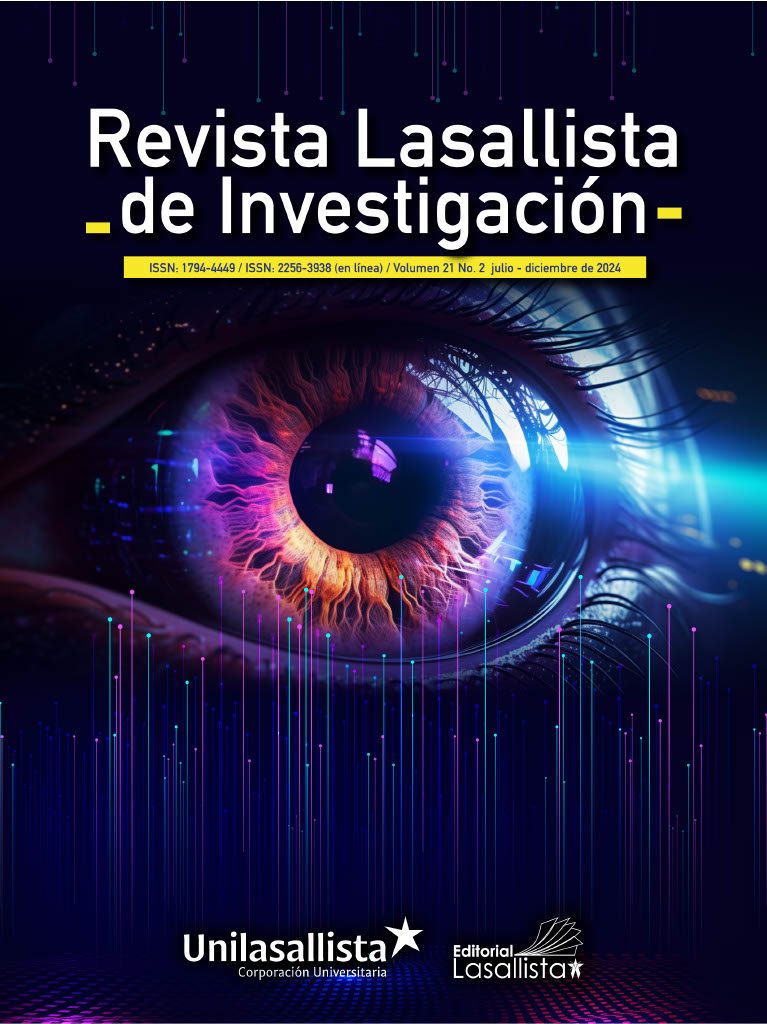Solar-powered toys: strategy for teaching and learning natural sciences
Juguetes alimentados con energía solar: estrategia para la enseñanza y aprendizaje de las ciencias naturales

This work is licensed under a Creative Commons Attribution-NonCommercial-NoDerivatives 4.0 International License.
Show authors biography
Introduction: Consolidating actions aimed at strengthening teaching and learning processes mediated by the design of solar-powered toys that address a problem of global interest such as climate change, is undoubtedly an opportunity to generate learning around technological, academic and environmental contexts. Objective: To determine if the implementation of toys with renewable energies favors the teaching and learning of some natural science topics. Materials and methods: The research is qualitative and descriptive, in which 68 fourth grade students from four educational institutions, one in the USA and three in Colombia, designed and assembled three toys that work with solar panels. An interview was conducted before and after the students' interaction with the toys. Results: The toys helped to strengthen concepts of force, acceleration, speed, cell, energy, photosynthesis, measurement systems, use of a clinometer and organic molecules of the digestive system. Scenarios for decision making, scientific thinking, problem solving, and collaborative work were generated. Conclusions: The toys allowed reinforcing some natural science topics and evidencing that students identify the concept of climate change, but do not relate it as a problem in their territories, so it is relevant to formulate teaching and learning strategies in renewable energies with local and community impact.
Article visits 6 | PDF visits 3
Downloads
- Aleknavičiūtė, V., Lehtinen, E. and Södervik, I. (2023). Thirty years of conceptual change research in biology - A review and meta-analysis of intervention studies. Educational Research Review, 41. https://doi.org/10.1016/j.edurev.2023.100556
- Calle-Álvarez, G. Y. y Vargas-Franco, C.V. (2022). Estilos de aprendizaje en el desarrollo del pensamiento espacial y geométrico en la básica primaria. Revista Lasallista de Investigación, 19(2), 101-117. https://doi.org/10.22507/rli.v19n2a7
- Carter, K. and Prevost, L. (2023). Formative assessment and student understanding of structure-function. Advances in Physiology Education, 47(3), 615-624. https://doi.org/10.1152/advan.00215.2022
- Cruz-Guzmán, M. y Martínez, E. (2022). Iniciación a las prácticas científicas en educación infantil: aprendiendo sobre el sistema digestivo por indagación basada en modelos. Revista Eureka sobre Enseñanza y Divulgación de las Ciencias, 19(1), 1-20. https://doi.org/10.25267/Rev_Eureka_ensen_divulg_cienc.2022.v19.i1.1202
- De Alba, V. y Ramos, S. (2020). Modelización científica escolar para explorar el sistema circulatorio en Educación Infantil. Enseñanza de las Ciencias, 38(1), 105-125. https://doi.org/10.5565/rev/ensciencias.2765
- Funata, M., Nio, Y., Erion, D., Thompson, W. and Takebe, T. (2023). The promise of human organoids in the digestive system. Cell Death and Differentiation, 28, 84-94. https://doi.org/10.1038/s41418-020-00661-3
- García, J., Becerra, D., Téllez, M. y Sánchez, A. (2022). Aprendizaje colaborativo en el estudio de energías renovables: un camino hacia la formación del profesorado. Formación Universitaria, 15(6), 71-82. http://dx.doi.org/10.4067/S0718-50062022000600071
- Garzón, J. y Bellon, D. (2022). Challenges in teaching of renewable energies in a digital world during COVID-19. From face-to-face to remote learning in Colombia. International Humanities Review, 14(5), 1-12.
- Giraldo, M. y Cuervo, J. (2021). Significados y representaciones de juguetes en Medellín: 1910-1940. Andamios, 18(47), 201-229. https://doi.org/10.29092/uacm.v18i47.871
- Landinho, F., Duarte, R. y Talamoni, A. (2022). Da nutrição à digestão: uma proposta contextualizada para o ensino do sistema digestório. Góndola, 17(3), 607-625. https://doi.org/10.14483/23464712.18937
- Martínez, F., (2022). La enseñanza de cultura científica en la escuela. ¿Por qué falla?, ¿cómo mejorar? Revista Mexicana de Educación, 27(93), 629-646. https://lc.cx/uZWbmN
- Morales, W. y Mardones, C. (2023). Representaciones docentes sobre competencias pedagógicas de la educación ambiental en la escuela colombiana. Varona, 77. http://revistas.ucpejv.edu.cu/index.php/rVar/article/view/2049
- Moreno-Mojica, C. M. y Barragán-Becerra, J. A. (2020). Prácticas pedagógicas y aprendizaje: transmisión o construcción del conocimiento en enfermería. Revista Lasallista de Investigación, 17(2), 60-76. https://doi.org/10.22507/rli.v17n2a5
- Morote, A. y Olcina, J. (2021). La importancia de la enseñanza del cambio climático. Propuestas didácticas para la geografía escolar. Estudios Geográficos, 82(291). https://doi.org/10.3989/estgeogr.202189.089
- Ojeda, A., Ojeda, H. y García, L. (2022). Educación ambiental para el buen manejo de los residuos sólidos. Inclusión y Desarrollo, 9(1), 74-86. https://lc.cx/4kIe_u
- Ortiz-Escobar, C. P., Londoño-Ardila, L. F., Restrepo-Vásquez, C. I. y Maya-Saldarriaga, M. M. (2020). Sentidos asociados al juego y al juguete en el ámbito hospitalario. Revista Lasallista de Investigación, 17(2), 149-161. https://doi.org/10.22507/rli.v17n2a11
- Riveros, H. (2020). La enseñanza de las ciencias naturales en la educación básica. Revista Mexicana de Física, 17(1), 41-46. https://doi.org/10.31349/RevMexFisE.17.41
- Serra, R., Moreno, A., Llovera, J., Muramatsu, M. y Magalhães, D. (2020). El juego y los juguetes en el proceso de enseñanza-aprendizaje. La hélice mágica desde la perspectiva de la física. Revista Cubana de Física, 37(49), 49-51. https://lc.cx/AaywuI
- Vega, Y., Torres, N. y Pedreros, E. (2020). Concepciones de los estudiantes de un contexto rural sobre la fotosíntesis. Praxis y Saber, 11(27). https://lc.cx/pqG2_6
- Yedra, R., Almeida, M., Ramos, E., Arceo, G., López, L. y Gómez, J. (2022). Microcontenidos para niños: una propuesta didáctica como apoyo en la enseñanza de las ciencias naturales en primaria. Revista Ibérica de Sistemas e Tecnologias de Informação, (50), 266-281. https://lc.cx/F8Lhph.
- Zúñiga-González, L. y Valenzuela-González, A. (2020). Educación en energías renovables desde el enfoque Ciencia, Tecnología y Sociedad -CTS. Pensamiento y Acción, (28), 47-59. https://doi.org/10.19053/01201190.n28.2020.11057







